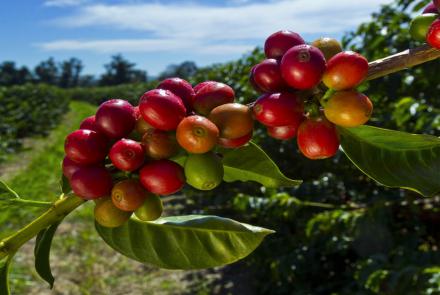WALTHAM COFFEE
The Coffee Journey of East Africa: Challenges, Opportunities, and Investments in the Future of Coffee
East Africa is the birthplace of coffee, home to some of the world's most renowned coffee-producing countries, including Ethiopia, Uganda, Kenya, Rwanda, Burundi, and Tanzania. More than five million people across the region are involved in coffee cultivation, with many depending on this vital crop for their livelihoods.
Small-Scale Farms: The Heart of East African Coffee
Unlike the large farms found in regions like Latin America and Asia, East African coffee farms are typically small. In many cases, these farms consist of just a few trees in a family’s garden. These smallholder farms contribute to the remarkable diversity in the flavors and aromas of East African coffee, making it one of the most sought-after types of coffee worldwide.
The region's diverse landscapes, from the Ethiopian highlands to the Kenyan Rift Valley, allow for a wide range of coffee varieties and processing methods, resulting in unique flavors in each region. From bright, fruity notes to rich, earthy tones, East African coffee is famous for its complexity and character.
Challenges in Coffee Production: Infrastructure and Climate Change
Despite its natural advantages, East Africa faces significant challenges in the coffee production process. Poor infrastructure makes it difficult for small-scale farmers to access markets and processing facilities, while climate change continues to threaten the delicate balance required for successful coffee cultivation.
East Africa is one of the most suitable regions in the world for coffee production, with its high-altitude highlands offering ideal conditions for growing coffee. Countries like Ethiopia, Uganda, Kenya, and Tanzania make up more than 80% of Africa's coffee production. The East African highlands, which sit at elevations above 1,500 meters, provide moderate temperatures, ample rainfall, and fertile soils that are perfect for coffee agriculture.
However, unpredictable weather patterns and changing climate conditions are becoming more frequent, affecting the yields and quality of coffee. These challenges highlight the need for improved infrastructure and sustainable practices to protect the future of coffee in the region.
The Aging Coffee Farmer Workforce and the Next Generation
Another significant issue facing East African coffee farmers is the aging population of coffee producers. Many young people, seeing the struggles their families face, are leaving rural areas to pursue opportunities in cities. The average age of coffee farmers is rising, which could lead to a decline in production in the coming years unless steps are taken to encourage younger generations to stay in coffee cultivation.
The migration of youth away from coffee farming is a growing concern, as the next generation of farmers is essential to maintaining the long-term sustainability of coffee production in East Africa. Investing in coffee producers, particularly the younger generation, is one of the most effective ways to ensure the future of high-quality East African coffee. This investment is not only essential for the survival of the industry but also for the continued improvement of coffee quality and production efficiency.
Investing in Coffee Producers: Ensuring a Bright Future for East African Coffee
Investing in coffee producers and their communities is crucial to maintaining the viability of coffee farming in East Africa. This investment supports both the people and the quality of coffee. With the right investments in training, sustainable practices, and better infrastructure, we can ensure that East African coffee continues to be one of the world’s finest, known for its exceptional flavors and complexity.
Supporting the farmers who produce this exceptional coffee is an investment in the future of the industry. By addressing the challenges of aging farmers, climate change, and infrastructure, we can help preserve the rich coffee heritage of East Africa for future generations.
Conclusion: A Commitment to Quality and Sustainability in East African Coffee
East African coffee is renowned for its unique flavors and exceptional quality. However, the region faces challenges in ensuring that coffee production remains sustainable and prosperous. From smallholder farms to infrastructure improvements and the need for investments in the next generation of farmers, the future of coffee in East Africa depends on our collective commitment to sustainability, quality, and growth.
By supporting the coffee producers in East Africa and investing in their future, we can help protect the legacy of this incredible coffee region and ensure that its exceptional flavors continue to be enjoyed worldwide.


